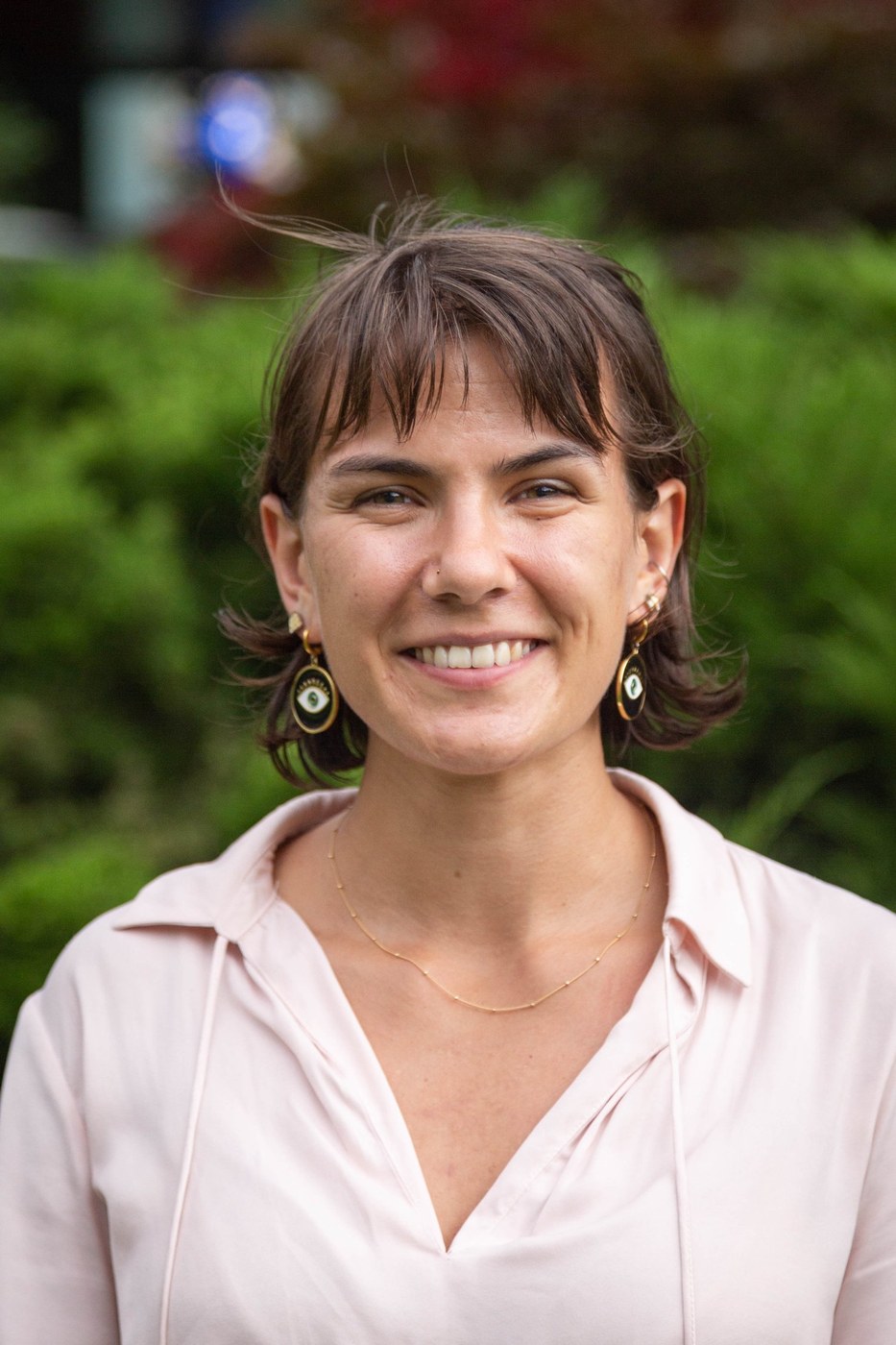This is the tenth short news article written by students, during the professional development class of Fall 2022, about each other's research.

Elena Gratton
Student Research Spotlight - Elena Gratton
By Sarah Henderson
The fat, fuzzy bumble bee is a familiar insect to most people, commonly seen ambling clumsily from flower to flower. However, these bees do a whole lot more than just look cute. They are important pollinators for many plants and critical for producing food like tomatoes and cucumbers. Unfortunately, all is not well in the lives of these rotund and beneficial insects. There are a multitude of diseases making them sick, and the environment they live in can play a heavy role in the spread of illness.
Graduate student Elena Gratton, a Master’s student in Penn State’s entomology department, is investigating the way landscape differences affect disease in bumble bee populations. “We know that diseases caused by viruses and parasites are contributing to bee declines, but we do not know how to best control these diseases in wild bees. I am investigating if how we manage our landscapes can reduce diseases in bumble bees.” Elena says.
If pollinators continue to decline, it could mean trouble for more than just the bees. Flowering plants need pollinators like bumble bees to facilitate reproduction. For us, this means we rely on pollinators for food. If bumble bees are in trouble, it’s a threat to food systems and an issue of economic importance. Unearthing solutions, however, isn’t easy. This is where Elena hopes her research will answer some questions.
Elena hopes to discover how aspects of the landscapes inhabited by bumble bees can affect disease load. She conducts her research in a variety of places in Pennsylvania, collecting bees from both degraded farmlands and undeveloped deep forests. She then tests the bumble bees for pathogens such as Black Queen Cell Virus and gut parasite Crithidia bombi. Surprisingly, Elena found that forested mountain tops had increased presence of Crithidia, while agricultural fields had more instance of Black Queen Cell Virus. By analyzing landscape characteristics along with information from the bees she collects, Elena hopes to shed more light on factors influencing bumble bee health.
Ideally, Elena hopes this research can contribute to conservation efforts. If we know how the landscape affects bumble bee health, we can manage it to make them healthier. This could be of great benefit to farmers who rely on bumble bees for pollination, and to people who manage natural landscapes. Elena’s work will aid in unlocking the secrets of what makes bumble bees sick, and how we can help them get well.
Elena’s thesis advisors are Dr. Heather Hines and Dr. Christina Grozinger, and she is collaborating with Dr. DJ McNeil (University of North Carolina, Wilmington). This project supported by funding from USDA-FFAR and USDA-APHIS.

